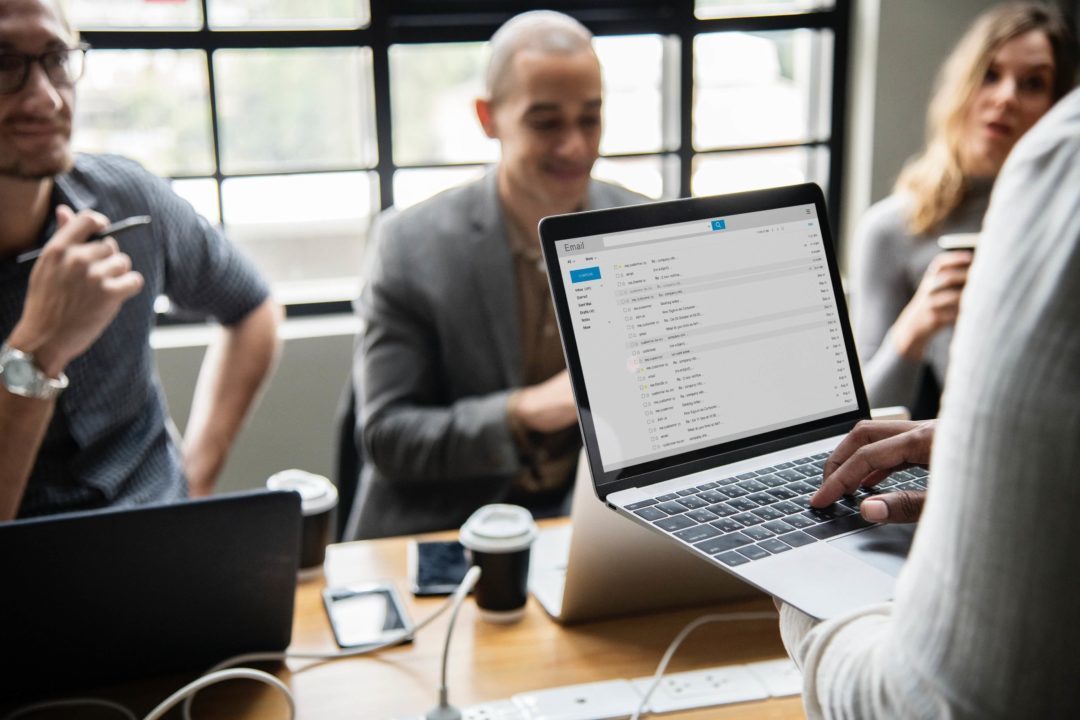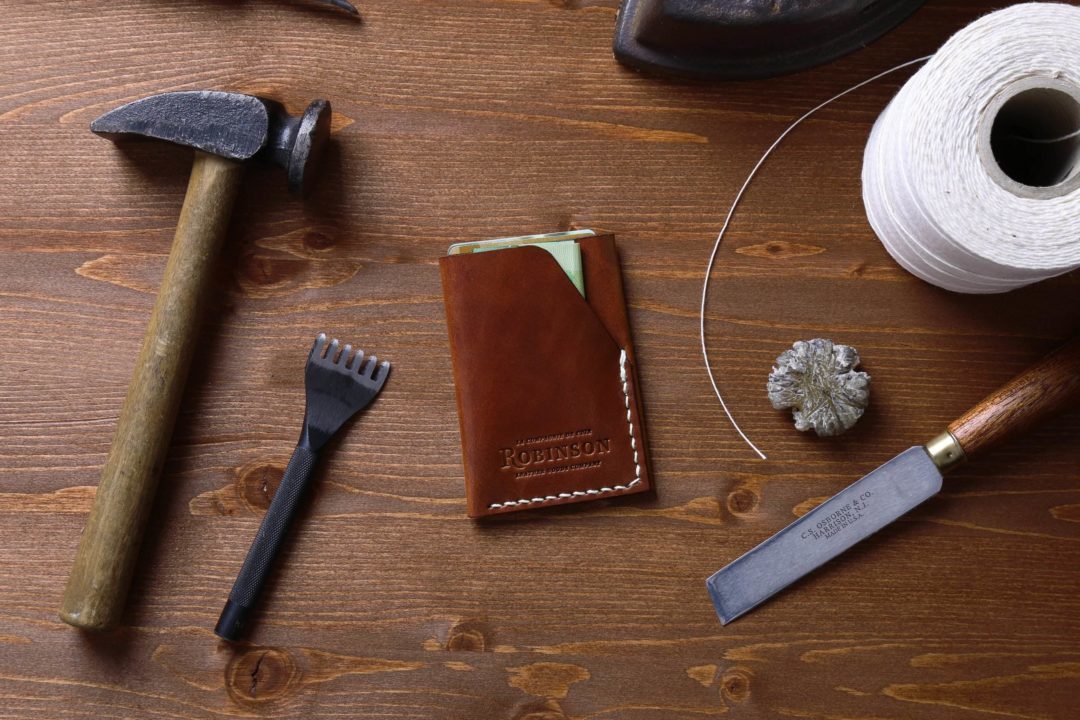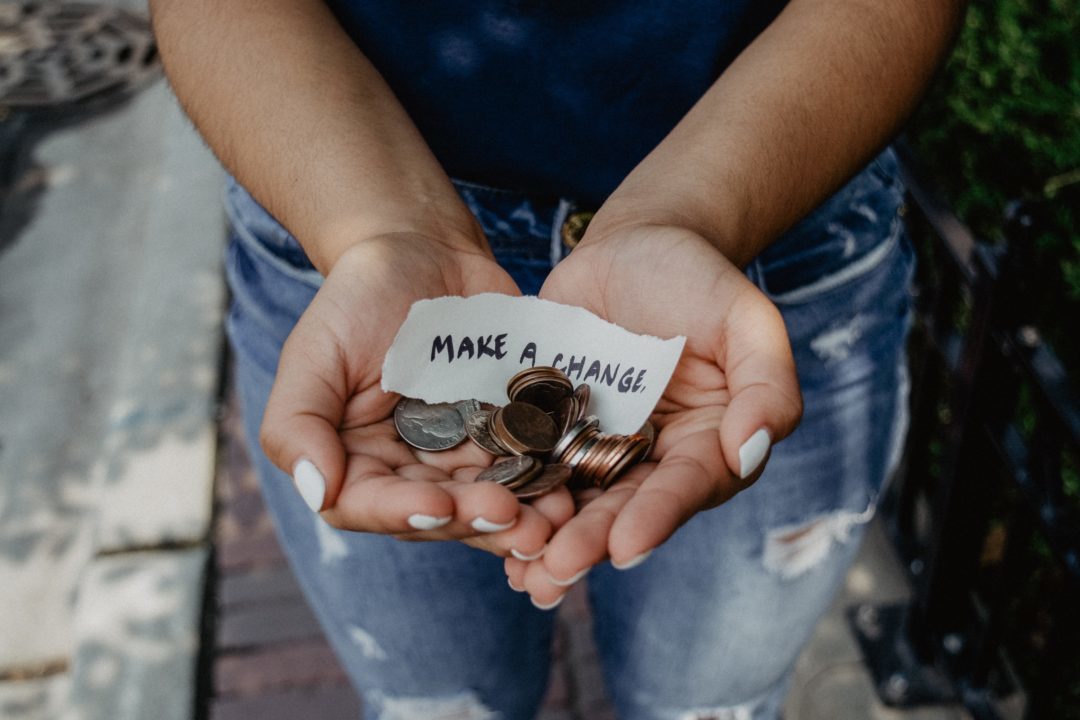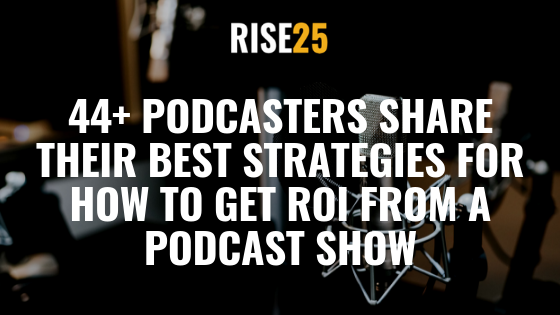How do you make money from a podcast?
The answer might surprise you.
I conducted a research survey of hundreds of prominent podcasters and asked a simple question – “what are your best strategies for monetizing your show?”
I asked if they would share their best tips, and successes and challenges in developing an income from this innovative medium.
Why conduct this research?
I launched my podcast in 2012, and for a few years before that, I simply recorded interviews which I transcribed and posted on my blog. I have found my podcast to be one of the best things I’ve done, hands down, since I started my business.
I’ve gotten hundreds of clients, sold out live events, gained hundreds of registrants for webinars and online trainings, connected with strategic partners and referral partners, made amazing friends, and I’ve even gone to people’s weddings.
Even my business partner Jeremy Weisz (host of the INspired INsider podcast since 2012 and formerly a producer for the groundbreaking Mixergy podcast) came because of podcasting.
But I also recognize that the road to monetizing a podcast is not always straightforward.
That’s why we decided to do this research and create this article.
Since the early days of my show, I have tried just about everything to monetize my show.
Today, I can report that doing a podcast is the #1 thing I’ve done to grow my network, and attract new clients and referral partners. I can trace multiple 6 figures in revenue to the podcast, and I know my business partner Jeremy can do the same.
And the same can be said for the many clients who we’ve helped to create a podcast. They have found it is a huge value driver for their business, bringing in new clients, referrals and revenue.
Don’t have enough time? No worries. Creating a podcast actually takes far less time than not having a podcast, because it gives you access to higher level people and you leverage the principle of reciprocity.
But I wanted to test all these assumptions by talking to other podcasters.
Finally, I was not surprised that many of the podcasters I connected with said they had not been successful in monetizing their show for various reasons. Or at least they didn’t think of themselves as monetizing their shows directly.
“I don’t directly monetize my podcast,” said Greg Jameson, host of the 20 Minutes of Influence show. Instead, he said “I use it to grow my own connections and influence by featuring others who have more impact than myself on specific topics.”
On the 4 Chicks Chatting show, four friends engage in “Womanish talk about business, personal development, humor, inspiration, empowerment, and whatever else enters our frequently inappropriate squirrel brains at the moment.” One of the 4 hosts, Kathy Marcino, says monetizing has been a challenge with larger companies. “We’re currently working on sponsorship packages that target not only the larger corporations, but give smaller, local businesses a chance to be a part of an exciting new platform,” she says.
Too many shows I’ve enjoyed listening to over the years came to an end because the host couldn’t figure out a way to make money from it and they got frustrated. With this comprehensive list, I hope to prevent that from happening again.
Here are 44+ podcasters’ best advice on how to develop a profitable podcast.
Pick the right topic for your show
Before trying to make an income from your show, you should make sure you pick a topic that has enough interest. “I would look at if there is demand for people to learn about your topic you want to podcast on” says Jeffrey Butler, keynote speaker to millenials and host of the GigaNation podcast.
Butler says before you launch a show in a new niche, you should do your research. “This can be done by simply searching the Itunes podcast libraries; if there are similar ones great, if not, you are going into uncharted territories,” says Butler. “It is better to go into a crowded space so you know there is demand and find your unique selling proposition as you grow as a brand.”
Steve Simonson, host of the Awesomers podcast, says you need a clear vision so you can find the right targeted audience. “You have to find somebody who is really centric to your audience and especially who believes in the vision,” says Simonson. “I would generally start with the idea of do everything you can to help people. And if you do that, then I think sponsors will start showing up.”
You don’t need a large audience to make money

In our research, we found that most of the podcasters we talked to were under the assumption that the only way to monetize a podcast was by building a large audience and then charging for advertising or sponsorship.
Norman Bell says he initially thought he would monetize with advertising or sponsorship, but eventually realized there was a better purpose. “When I first launched, I was concerned about trying to build my audience,” he says. “But [I’ve found] that regardless of the number of people listening, it is an amazing networking tool to be able to connect with people all over the world that you never would have the chance to connect with otherwise.”
Mike Janela, a TV host and producer, says he has found his podcast is a useful tool, even without significant downloads. “With my listener numbers, I just don’t think it’s worthwhile” to try to monetize it with advertising, says Janela, the host of the Mike Janela show.
However, Janela says he has other motives. “I do the pod[cast] mostly to diversify my hosting skills and to prove to other media entities that I have those talents.”
Other podcast hosts reported that small and hyper niched podcast audiences create business opportunities – for the guests and the audience. Kinsey Roberts, of the She Creates Business podcast, says her focus on female wedding professionals has helped her to generate income because it “allow[s] me to create extremely tailored experiences for my guests as well as my listeners.”
Build Your Brand
I hesitate to include this category, because a “brand” doesn’t equal dollars in the door. However, many podcasters we spoke with reported that the podcast helped them indirectly, by building their brand and reputation, which led in turn to additional benefits such as more clients, referrals, paid speaking opportunities, and more.
“Over time, I came to see the podcast as a great way to build a brand and connect with amazing people,” said John Lim of the Moving Forward show. “It’s done so much for relationship and network building which makes the “intangible” ROI extremely high and worth the time and effort.”
Arlene Battishill of the What’s Your Next Move podcast agrees. “It’s a VERY powerful medium for many of us, not so much in terms of $$$ ROI in traditional terms, but in indirect ways that create many more opportunities to generate revenue,” she says.
A number of podcasters said that simply being more transparent via the podcasting medium has helped them to build their brand, which in turn leads to more business. Kareen Walsh of the Your Badass Journey podcast (love that title!) says that the show has helped to “extend my reach in my leadership and executive coaching practice by sharing more about my style and methods through this medium.”
Avoid Advertising, Especially for Smaller Shows
What may come as the biggest surprise from our research – especially to new podcasters – was that the more savvy podcasters did not use advertising or sponsorship at all. “We try to do as little advertising as possible on the podcast,” says
Jacy Elsesser, cohost of the Fix It Home Improvement show, which has 45,000 fans on YouTube. “Being a big fan of podcasts, we don’t like to listen to a bunch of ads, so we try to limit the amount on ours.”
Annie Rogaski agrees. “I’m not a fan of ads in podcasts. Don’t like them when I’m listening, so don’t want to include them in mine,” says Rogaski, host of the Unraveling Pink podcast.
In spite of her distrust for ads, Rogaski says she doesn’t think the podcast community has really figured out the best way to monetize yet. “[It] seems we’re trying to port in models from adjacent media that might not be the right fit,” says Rogaski, who launched her show in 2016. “It still seems a bit clunky and … listenership size thresholds skew in favor of the larger, more produced and less independent podcasts.”
Use Multiple Strategies to Monetize – Not Just One
Timothy Lawson, who has hosted a dozen podcasts, has used numerous strategies to fund his love of the medium, including a commission from a company and selling merchandise.
He was even paid by a coffee company to start a podcast for them. “They wanted to use a podcast to get their name out there, so they asked me to create one for them,” says Lawson. “I did all of the production work like recording, editing, and publishing.”
Be Very Deliberate in Who You Interview & Do all the outreach yourself
Who you choose to be a guest on your show is very important, because collectively, your guest community will become your extended network and your extended network will determine your revenue. That’s why only you should handle guest selection, says Kinsey Roberts of the She Creates Business podcast.
“Instead of contracting out guest outreach to a PR company, I do all the outreach myself,” says Roberts. “This is intentional and results in better quality interviews and relationships with my guests and I believe my listeners feel that so they trust me more.”
Leverage Your Audience with a Crowdfunding Campaign
Another way to monetize a podcast audience is through a crowdfunding campaign on Kickstarter or Indiegogo.
Isaac Daly is passionate about spearfishing, and decided to launch a podcast dedicated to it. He says the podcast alone doesn’t make a lot of money, but “[w]e use it to build relationships, get people into our community and provide value to both our advertisers and listeners,” says Daly. Over time, Daly was able to pay an audio editor, and he also launched a Kickstarter campaign that was 300% funded, “primarily due to the podcast [in my opinion],” says Daly.
Back in 2014, Lawson, the host of a dozen podcasts, wanted to do something about the epidemic of veteran suicide in the U.S., so he launched a 12-episode podcast called 1, 2 Many Veteran Suicide on Kickstarter. He received contributions from over 100 backers, ra ising over $6,000 for the project.
Start Monetizing Your Podcast Using Your Current Business

The easiest way to monetize a podcast and to get ROI is by using it to generate new leads and clients for your current business.
Many of the business owners who I spoke with said that they were using their podcast as a direct tool for generating clients and therefore revenue for their business.
“I get a number of leads every month from listeners of the show who want to work with me on landing page projects,” says Nicholas Scalice, host of the Growth Marketing podcast. “This has been a great way to make new connections and attract new clients.”
Carmine Denisco of the Inventor’s Road to Success podcast said the podcast has built trust with potential clients and referral partners. “When we meet potential clients or set up a call with someone whom would be a great partner or reference, they act as if they have known us for years,” she says. “They know, like and trust us because of the show.”
Fernando Flores, an attorney turned high performance coach and host of the iMater Now podcast, says he has “gotten a couple of coaching clients from the podcast and 1 speaking gig,” but the challenge has been the time it takes to put on the show. “I think the biggest challenge is that I am [the one] that does all the audio editing, which takes a lot of time.”
On Jared Warner’s Get Found Radio podcast, he shares recordings of his own coaching. The result? A pretty phenomenal average of $20 per download. “Sometimes the guests hire me, often times listeners that identify with the same problems do,” says Warner.
In spite of this, podcasting remains a part-time hobby. “It’s been just one of the things I do and not my “main” thing,” says Warner.
Melbourne, Australia-based Cullen Pope has two podcasts – EATT Magazine and Silicon Beach Radio. He says the way he has monetized the shows is by offering strategic marketing services through his “SEO Saturday studio.” “In a nutshell, two Saturdays a month we take on any new clients offering strategic marketing services,” says Cullen.
Use the Show to Build Social Proof, Credibility and Authority
Marc Sanchez is a Cricket farmer based in Eugene, Oregon, who says he started The Ento Nation podcast because, and I’m not making this up, he wanted to establish himself as “the voice of the edible insect industry.”
Rather than worry about selling ads from day one, he sought to get endorsement blurbs from thought leaders in his industry and “in-kind” sponsorships. He ended up getting two dozen endorsements in just his first year, and “currently 90% of my sponsors pay me no money, but we exchange services for the placements,” says Sanchez.
Get Clients from Interview Guests
I know I have gotten numerous clients from my interview guest roster, and a number of podcasters reported the same. Damian Smyth of the Rethinking Business podcast and Mark Galvin of the How’s your ePresence? Show both reported they do the same.
Books and Merchandise

Aleisha Maddock, host of the Bridechilla podcast, says that her show evolved from a weekly podcast into more of a full-fledged brand, which created opportunities for selling other physical products. “We have books and merchandise, a fabulous Facebook community of ‘Chillas’ (my listeners came up with that!) and also developing more physical products.” One of those products is a “day of wedding kit” called ‘The Bridechilla Oh Sh*t kit’” says Maddock.
Krisz Rokk, host of the Strength in Business show, used his show to promote his book about podcasting, which became a German language bestseller on Amazon.
Affiliate Programs
A few podcasters reported that they used affiliate programs to generate revenue from their show. An affiliate program is a program set up by a retailer or seller which pays a commission to someone who refers a sale to them. They are quite common (I signed up for Amazon’s affiliate program way back in about 1999).
Lorenzo Flores of the Life of Lozo podcast was one of the podcasters who told me affiliate programs for online products has been a revenue source for him, along with podcasting gear sponsorships from product manufacturers. In fact, if you use affiliate links and generate enough sales, then you can use that data to approach the manufacturer of the product you are promoting and propose a sponsorship, on top of the affiliate commissions.
Bryan Teare of the Quarter Life Comeback show had a creative approach. “I used affiliate products as “sponsors” of the show (with their permission), and directed people to my affiliate link,” he says.
Fundraising
One area I was surprised to hear was a strategy for funding a podcast was fundraising. Judithe Registre of the The Get Inpowered Podcast reported she raised $10,000 for her show, whose mission is “to advance narrative justice through story equity.” She says he podcast is a means to an end, not the end itself, and part of a broader strategy.
Free Access to Events via Press Passes
Alain Guillot of Montreal, host of the Alain Guillot Podcast, says one way he has monetized his podcast is by getting free access to local events. “Whenever I see an interesting event in my city (Montreal) I call the organizer, I tell them I am a podcaster, and I ask for a press pass,” he says. “Sometimes it works, sometimes it doesn’t work, but so far, I have saved a good amount of money in event passes.”
Information Products
A few podcasters reported that they used their own information products to generate revenue from the effort they put into their shows. Daniel Louzonis of the Einstein Blueprint show – which bills itself as being for “the world’s most ambitious parents – toddler accelerators, tiger parents, homeschoolers, parents who want to raise entrepreneurs, anyone else who is excited about hyper accelerating children” was one of the podcasters who followed this strategy. Louzonis sells a $197 “10X Homeschool” product on his website which is an information product about how to effectively homeschool your children.
Sponsorship Bespoke Packages
Although most podcasters reported little luck getting sponsors – especially without large download numbers – one particular host reported a creative way to get higher fee sponsors.
“To increase sponsorship fees, I often put together a bespoke package for sponsors,” says Chloe Thomas of the eCommerce MasterPlan Podcast. The package often includes pre-roll and mid-roll ad reads, interviews with the sponsor’s own clients, or a debate around a recent white paper they created. “This increases the value for them, and therefore increases the fee too,” she says.
Thomas also creates podcast-listener-only deals when she is launching products, which she says works well.
Accept Patreon for Your Show

Jared Easley, co-founder with Dan Franks of the podcasting conference Podcast Movement, suggests new podcasters use Patreon to generate revenue for their show, which allows a podcaster to accept contributions from listeners. While the strategy may not yield huge dollars, Easley says that “crowdfunding is a form of a litmus test for the podcast host. If a podcast host is having trouble getting support through crowdfunding, it is usually an indicator that they need to continue growing their audience and/or that the show is not resonating with the listeners overall.
Easley says any form of podcast monetization requires patience and effort. “There is no magic wand for making money,” says Easley. “It seems like the podcast hosts who find success with this is working hard to serve their audience. The audience usually is willing to support that effort. I really like the [Patreon] method of monetization as a way to continue validating that the podcast is making an impact.”
Dennis Westlind of the The Hostile Work Environment show has had some luck with Patreon. “We have around 25 patrons who give varying amounts,” says Westlind, who reports that they give their patrons access to additional content that the regular listeners can’t access. “It’s enough to cover our expenses, but not a lot more.”
After a year of using Patreon, podcaster Greg Jackson of the History That Doesn’t Suck podcast says he has been pleased with the results. “We currently have 46 patrons,” says Jackson. “It’s bringing in a couple hundred bucks per month, which is enough to cover most of our costs,” which include hosting services, buying books for research, and equipment as they expand into YouTube video production.
Beyond the financial support though, Jackson says “there’s something really inspiring about looking at my account and thinking, ‘wow, these people believe in what we’re doing so much, they are voluntarily supporting our otherwise free product.’”
Take Equity in Companies
Jordan Harbinger, creator of The Jordan Harbinger Show podcast, says another way to generate revenue for a podcast show is by taking equity in companies.
“When I find startups that I like or other companies that don’t have a budget for advertising but are interested in getting publicity, I offer some promotion on the show,” says Harbinger.
Promotion on the show can come in the form of ads or other promotion or even an interview with the CEO or founder. The equity, says Harbinger, “are small bets that don’t really cost me anything and end up with interesting shows and ads I would never otherwise have in my unsold inventory. Some of these bets can pay off in a really big way that would pay more than any commercial or advertisement ever would.”
Get Value from New Connections and Network
Many of the podcasters I spoke with reported that the true value was in the connections they made through their show, and over time the network that they developed as a result of the proactive nature of interviewing guests on a podcast.
Todd Cochrane, longtime host of the Geek News Central podcast and a Podcast Statistics & Advertising Expert, brings his show to conferences as a tool for making more connections. “I broadcast live from CES and NAB each year and also do interviews,” says Cochrane, who is also CEO of RawVoice / Blubrry, a leading podcast media company with 75,000 podcaster customers. “So the connections from those two shows pay off huge dividends.”
Janet Fouts, host of the Mindful Social podcast, said that the value came “In part from the relationships I develop with the guest and their audiences” over and above the”strategy, consulting and coaching engagements” she has gotten from hosting the show.
Jeff Bogaczyk of the Mind for Life personal development podcast agrees, saying he “gets good ROI but not in terms of money,” says Bogaczyk. “It’s more a content marketing strategy and the return for me is in the networking and relationships I build through the medium.”
Nicholas Scalice, founder of the Growth Marketing Toolbox, says “I get a number of leads every month from listeners of the show who want to work with me on landing page projects. This has been a great way to make new connections and attract new clients.”
Jacy Elsesser, of the Fix It Home Improvement podcast, say they have “monetized our e-books and use the podcast as marketing for the books and our YouTube channel that we monetize. We try to do as little advertising as possible on the podcast.”
Create a Membership Program
Janet E. Johnson consults & trains small and large businesses on branding, optimization and content marketing. When she launched her podcast, the Business Growth Time podcast, with her good friend and business partner Terry Bean, she used the show to attract new clients. But they also used the platform to attract “members in my membership program… have joined because of [the show].”
Be Willing to Test & Change Strategies

Maddock, the host of the Bridechilla podcast, says they experimented with putting most of their episodes behind a paywall and charging listeners. “We had a lot of loyal subscribers but ultimately we realized about 6 months in that the paywall wasn’t making us the profits,” says Maddock. Worse yet, they were blocking new listeners from discovering the show. “It was a good experiment and something I’m glad we did, but having those episodes available to everyone is the right move.”
John Lim of the Moving Forward show tried experimenting with a “booking fee” for guests that pitch directly to the show. Lim says they would not charge those who he personally knows or invited to be a guest. The idea for the booking fee came after
Lim was “inundated with a lot of emails from individuals as well as PR and booking services,” he says. All those pitches meant he couldn’t put as much time and care into each episode, so he saw the booking fee as a way to offset that.
So far, he reports the results have been mixed, but it did have a benefit in decreasing the volume of email pitches he was receiving. “Perhaps the market demand isn’t there so it will be interesting to see what happens,” says Lim.
Another podcaster, Ivan Temelkov of the The Human Business Narrative show, has leveraged a new technology – in-stream ads. This particular type of advertising means the podcaster doesn’t insert the ad; rather a 3rd party company “inserts” an ad “downstream,” which creates new advertising opportunities for advertisers, and new revenue opportunities for podcasters.
Wrap Up
There is no “silver bullet” solution that will automatically make your show wildly profitable. However, there are many, many different strategies for generating great income from a podcast show. It’s just a matter of finding the right strategy that works for you.
I hope creating this article will inspire you to keep going with your show (or launch it if you haven’t yet!), and turn it into a profitable revenue source and you have as much fun publishing your show as I have over the years.
Need More help with your show?
John Corcoran is a former Clinton White House Writer and speechwriter for a Governor of California, and co-founder of Rise25, which does lead generation for B2B businesses. If you need help better monetizing your show, or if you’ve always thought about starting a podcast and need help getting it off the ground, contact us here. We work with B2B business owners who want to use a podcast for business development and to get more clients, referrals, and strategic partnerships.
Our service includes our team of copywriters, audio editors, and web developers who take 99% of the work – so that you will spend less time (yes, less time!) on prospecting and more time talking to qualified prospects and working with clients you love.
We have limited bandwidth of who our team can work with, but if and when you’re ready to offload all of that work plus incorporate strategy around how to get more leads & revenue from your show, get in touch.
Originally published at rise25.com


